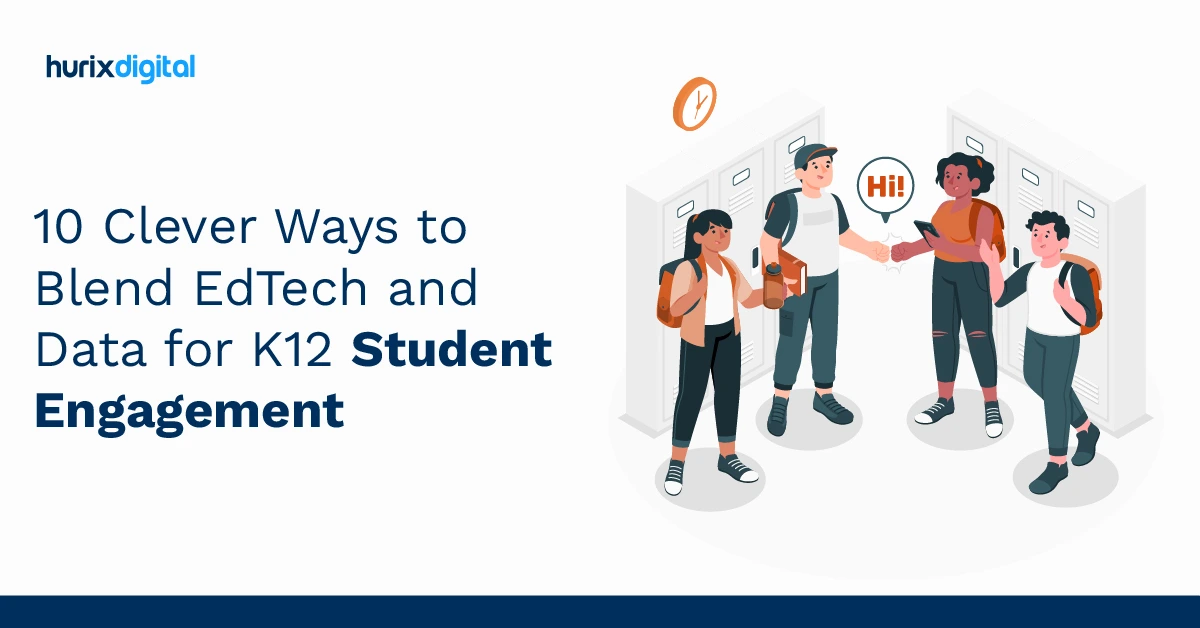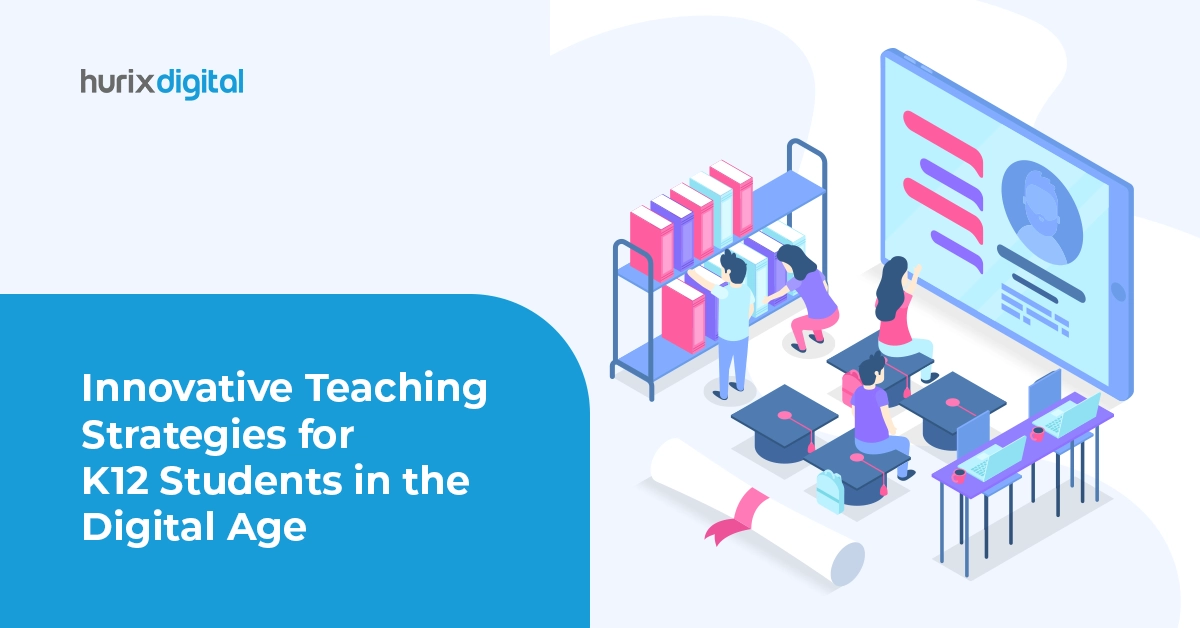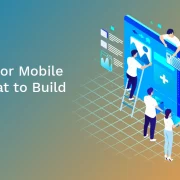
Top 6 Teaching Strategies Adopted by Higher-Ed Institutions Post-Covid
The blog post discusses teaching strategies higher education institutions adopt during the COVID-19 pandemic and uses a mix of instructional strategies to facilitate online learning and keep students engaged.
The COVID-19 pandemic has forced higher education institutions to adapt very promptly to a new era replete with remote learning. This disruption in the traditional classroom setting has forced educators to find innovative ways of instruction to continue learning and keep students engaged.
According to UNESCO, school closures caused by the pandemic affected more than 90 percent of the world’s student population. This unprecedented disruption necessitated creative solutions to maintain the quality of education.
This blog examines one of the most successful teaching and learning strategies employed by higher-ed institutions in the post-COVID era.
Table of Contents:
- Six Strategies in Teaching Adopted by Higher-Ed Institutions
- Challenges and Considerations
- In Conclusion
Six Strategies in Teaching Adopted by Higher-Ed Institutions
In a dynamic learning environment, educators can use blended learning, including flipped classrooms, online discussions, peer-to-peer learning, gamification, and microlearning, to accommodate different learning styles and deepen student engagement.
1. Collaborative Learning
Collaborative learning is a modern teaching method widely adopted by colleges and universities in the post-COVID world. In this method, instructors form a group of students and allow them to solve their problems, hold debates or discussions on topics, and clarify their queries. It is among the most popular post-COVID teaching strategies, as it helps students develop social skills and understand the subject or content faster.
The key benefit of this teaching strategy is that every student contributes to the success of a group. Students collaborate, support each other to reach the desired result, and learn to communicate with each other.
The strategy also allows learners to develop active listening and teamwork skills. It enables them to meet and work with people of different personalities and receive genuine feedback on their work.
2. Technology-Based Learning
Effective technology use is essential for online learning. Therefore, an increasing number of higher education instructors are using technology, such as smart boards and webinars, in their teaching strategies to help students learn better.
One of the advantages of these tools is their flexibility. For instance, a small smart board can be carried almost anywhere and allows instructors to create a good visualization (various colors, text types, graphs) for the topic being taught for better student understanding. The best part about using these smartboards during webinars is the efficiency and creativity they offer in delivering online course content.
Further, these smartboards, in combination with robust video editing software, allow instructors to edit the entire lecture and send it to students as documents via email.
3. Flipped Classroom Strategy
A flipped classroom is a popular pedagogical method that is gaining popularity again in the post-COVID world. It refers to one vital modern teaching method in which the teaching procedure is flipped.
Unlike traditional teaching methods, in a flipped classroom strategy, learners study new material/content independently and practice the same at college (physically/virtually). Put simply, this method is the reverse of offering content in class and asking students to practice it at home.
The main advantage of a flipped classroom teaching strategy is that students get enough time to understand the topic. Further, the strategy also enables students to suggest ideas related to the content and share them with their peers.
4. Socializing with Students Before and After Class
With online learning, socialization- one of the important aspects of learning- is completely missing. That is why many instructors are now adapting the inclusiveness of socialization in their teaching strategies for higher education and online teaching to help learners alleviate the lack of motivation. Some of the ways they are doing this include-
Virtual tours & interactive forums
Instructors use these virtual hours and interactive forums to start new discussions, allowing students to ask questions, submit assignments, and more.
Online meetups
Instructors create online meetups using conferencing services such as Zoom, Google Hangouts, and Skype. They use this space to address student concerns, questions, or suggestions for class improvement.
Also Read: 5 Online Teaching Strategies That Improve Student Learning
5. Gamification
One of the most exciting teaching strategies in higher education is teaching through games, which is a common method colleges have adopted today. Unlike the popular notion that gamification techniques are significant only in the elementary and preschool systems, they are equally effective for higher-ed students.
However, instructors are responsible for making gamification-based teaching effective. They must design and plan projects that are most suitable for their students.
There is a need to incorporate various interesting techniques and gamification strategies to engage students longer. There are several online platforms under gamification, such as online quizzes, games, puzzles, and more for higher-ed students from whom instructors can get help.
6. Mixing a Variety of Instructional Strategies
With online learning becoming mainstream in today’s environment, it has become important for instructors to experiment with various instructional strategies to keep students engaged. The availability of technology makes it easy for instructors to create virtual learning environments that allow learners to collaborate and engage just as well as in the classroom.
Online learning instructors use a combination of different teaching strategies for college students based on learning resources and styles, blending traditional learning methods with newer, more collaborative audio and visual tech tools. This makes the content for the college teaching strategies much more interesting and exciting, increasing learner engagement. The course, for instance, should have a mix of debates, discussions, collaboration, video and audio clips, hands-on exercises with text, and brief video lectures to keep students engaged throughout.
Some of the other strategies that educators are adopting include:
Dividing the content into short chunks
Lengthy lessons aren’t the best way to engage students in physical or online classes. Therefore, instructors try to break the lesson into 10 or 15-minute short lessons to help students learn effectively.
Using a variety of learning tools
Educators use various learning tools, such as online resources, templates, slideshows, presentations, and more, to make lessons interactive and fun.
Challenges and Considerations
Although these strategies work effectively, higher education institutions suffer from some challenges in their implementation:
1. Digital Divide
The greatest challenge could be the digital divide. Students do not equally share access to technology and internet connectivity, which is disadvantageous for their participation in e-learning activities and access to educational resources.
2. Technical Issues
Technical problems, such as platform crashes, slow internet speeds, and software glitches, can severely disrupt learning and frustrate students and faculty alike. However, good technology infrastructure, coupled with adequate technical support, can minimize such problems for any institution.
3. Student Engagement Outcomes
Student engagement is difficult to maintain in an online and hybrid learning environment. The dynamics of old classrooms, comprising face-to-face interaction and spontaneous discussions, sometimes prove very hard to emulate in the virtual environment. Educators’ challenge is using innovative strategies that produce interactive and engaging learning environments.
Also Read: 10 Best Practices in Blended Learning
In Conclusion
The COVID-19 pandemic forced a rapid shift to new modes of service provision. Although issues such as the digital divide, technical glitches, and student participation are still encountered, innovative teaching methods have opened up new opportunities for engaging and flexible learning.
However, implementing these strategies requires more than simply deploying technology. Universities must consider the digital divide and ensure equitable access to technology and resources. Additionally, providing ongoing faculty training and proactively addressing technical difficulties is crucial for a smooth transition.
Helping with this can be done by Hurix Digital, one of the prime providers of educational technology solutions. We offer a full-fledged suite of tools and resources to form an embankment for a strong and engaging online learning environment. Learn more about our solutions and take your steps toward educational innovation today!

Senior Vice President – Business Development
at Hurix Digital, with over 25 years of experience in EdTech and workforce learning. He excels in business development, customer relationship management, and scaling digital learning solutions, driving global growth through innovative content, simulations, and AI‑driven training offerings







